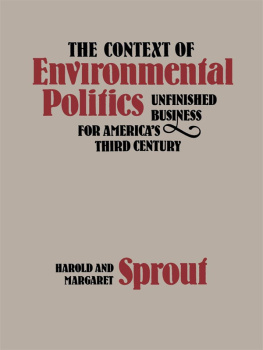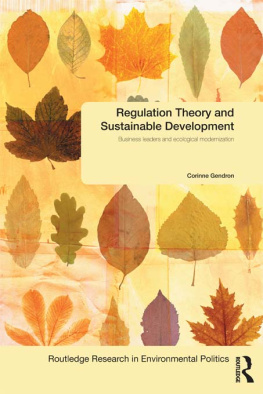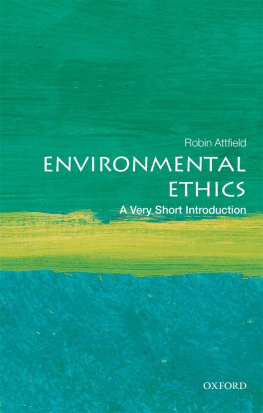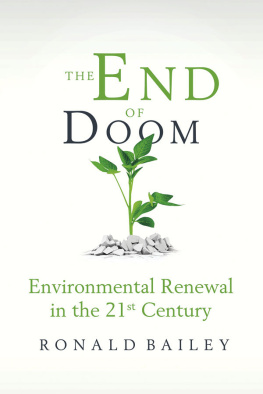This book was written under the auspices of the
Center of International Studies, Princeton University. Other
books sponsored by the Center are listed following the Index at
the back of this book. The present book is one of several
products of a research and writing program supported jointly
by the Rockefeller Foundation and Princeton University.
ISBN: 978-0-8131-5466-4
Library of Congress Catalog Card Number: 77-84066
Copyright 1978 by The University Press of Kentucky
A statewide cooperative scholarly publishing agency
serving Berea College, Centre College of Kentucky,
Eastern Kentucky University, The Filson Club,
Georgetown College, Kentucky Historical Society,
Kentucky State University, Morehead State University,
Murray State University, Northern Kentucky University,
Transylvania University, University of Kentucky,
University of Louisville, and Western Kentucky University.
Editorial and Sales Offices: Lexington, Kentucky 40506
This book is dedicated to
our grandchildren
ROBERT, STEWART, & ANDREW
Our Personal Stake in the Future
Other books by Harold & Margaret Sprout
Toward a Politics of the Planet Earth (1971)
The Ecological Perspective on Human Affairs (1965)
Foundations of International Politics (1962)
Foundations of National Power (1945 & 1951)
Toward a New Order of Seapower (1940)
The Rise of American Naval Power (1939 & 1967)
Prologue
What This Book Is About
Though it is easier, and perhaps far better not to begin at all, yet if a beginning is made it is here that most care is needed. Everything is inherent in the genesis.
These words were written early in this century in a totally different context. However, they offer sensible advice to all authors. They admonish us to tell the readers we hope to reach what the book is about, and to disclose explicitly our perspective toward the issues with which it deals.
The book is focused on one of the numerous subcultures, or variants, of the mixture of beliefs, wants, expectations, laws, customs, practices, and other behaviors that in the aggregate compose what is rather loosely called the national culture. The book deals primarily with phenomena included in what we call the public-interest subculture. Specifically, it deals with some of the conditions that circumscribe the exercise of American public authority with regard to the physical habitat of the United States, of larger regions, and of the earth as a whole.
More precisely, our objective is to present a reasonably coherent word-picture of conditions and forces that now limit and seem likely to continue to affect American political responses to vulnerabilitiesdamage, risks, hazardsassociated with a progressively deteriorating physical habitat. In short, as stated in the title, our theme is the context of environmental politics.
The policy problems subsumed in this context relate to many kinds of activities and relationships. These include some of the consequences of disruptive exploitations of nonhuman nature. They also include confrontations and interactions among individuals and organizations within the political community. In particular, we shall be concerned with factors that set the terms of permissible activities vis--vis the physical habitat.
These transactions reflect differences in conceptions of the public interest. They also reveal profound differences within the American community, and between that community and others, regarding past and continuing exploitation of the earth and regarding vistas of desirable and possible futures within the limits of our finite habitat.
We shall try to present these variant viewpoints fairly, but we make no claim of neutrality toward the progressive degradation of our magnificent country. We have been not only observers but also minor participants for three-quarters of a century in a milieu that seems to us to have changed and to be changing in ways both good and bad. We anticipate that still greater changes are likely to occur throughout and beyond Americas third century. Some of these we would doubtless welcome. But we also envision changes that, unless arrested in time, could render our America a much less congenial habitat.
From what we have said thus far, it is evident that this book deals with the relations of politics and environment. These are slippery terms. Some dictionaries offer six or more definitions of politics. We have encountered nearly as many different definitions of environment. Each term is used in so many different contexts and with such diverse referents and connotations that it is essential to state as explicitly as possible, here at the outset, how we are using these terms.
We use politics in the broad sense to denote confrontations and interactions involved in exercise of authority, influence, and power on individuals, on the community as a whole, and in the inchoate world community of legally sovereign states. By public authority we mean legal competence to act concerning a given subject matter as the legitimate agent and spokesman of an organized community; in the United States, this includes several levels of jurisdiction: federal, regional, state, and local. Persons invested with such legal competence are by definition public authorities. We shall use this term in preference to government when we desire to emphasize that the reference is to the actions of biological persons rather than to the abstract concepts of government and state.
Even more confusing ambiguities enshroud the noun environment and the adjective environmental. All definitions have a common core: some organism or population is surrounded, or encompassed, by some combination of conditions judged to be significant for that organism or population. So far, clear enough; but usage in different contexts and vocabularies is inconsistent as well as ambiguous. Does environment (without a qualifying adjective) include only nonhuman objects and events? Does it include human organisms? Human institutions and relationships? Mental images derived from cognition of phenomena by those concerned, regardless of whether such images fit the situation in question?
We read that the environment is deteriorating, and that there is an environmental crisis. Some activists demand that environmental programs be postponed until more urgent human objectives are achieved. Others warn that environmental deterioration is approaching a point of no return. What does this environmental crisis consist of? What is deteriorating? What should be postponed? What may be approaching some point of no return? Merely to ask these questions exposes the semantic ambiguities that enshroud environmental discussion.
Verbal usage varies among the natural sciences, social sciences, and moral philosophy, as it does in journalese, everyday speech, and still other vocabularies. In writing this book we have had to draw on all these sources, and others in addition. We have had to choose from conflicting definitionsor to redefine environment to suit the needs of this politically focused discussion. Our choice is to stick rather closely to the nontechnical usage of everyday speech which also approximates usage in the natural sciences. Though usage in no context is entirely consistent, natural scientists, journalists, and people generally tend to exclude strictly human phenomena from the idea of environment, especially human relationships such as status, discrimination, opportunity, and the like. Yet they rather generally include many conditions to which human activities contribute, such as depletions of natural resources; pollutions of air, water, and land; and other man-made changes in nonhuman nature. We shall often insert a qualifying adjective when the literary context seems unclear.










